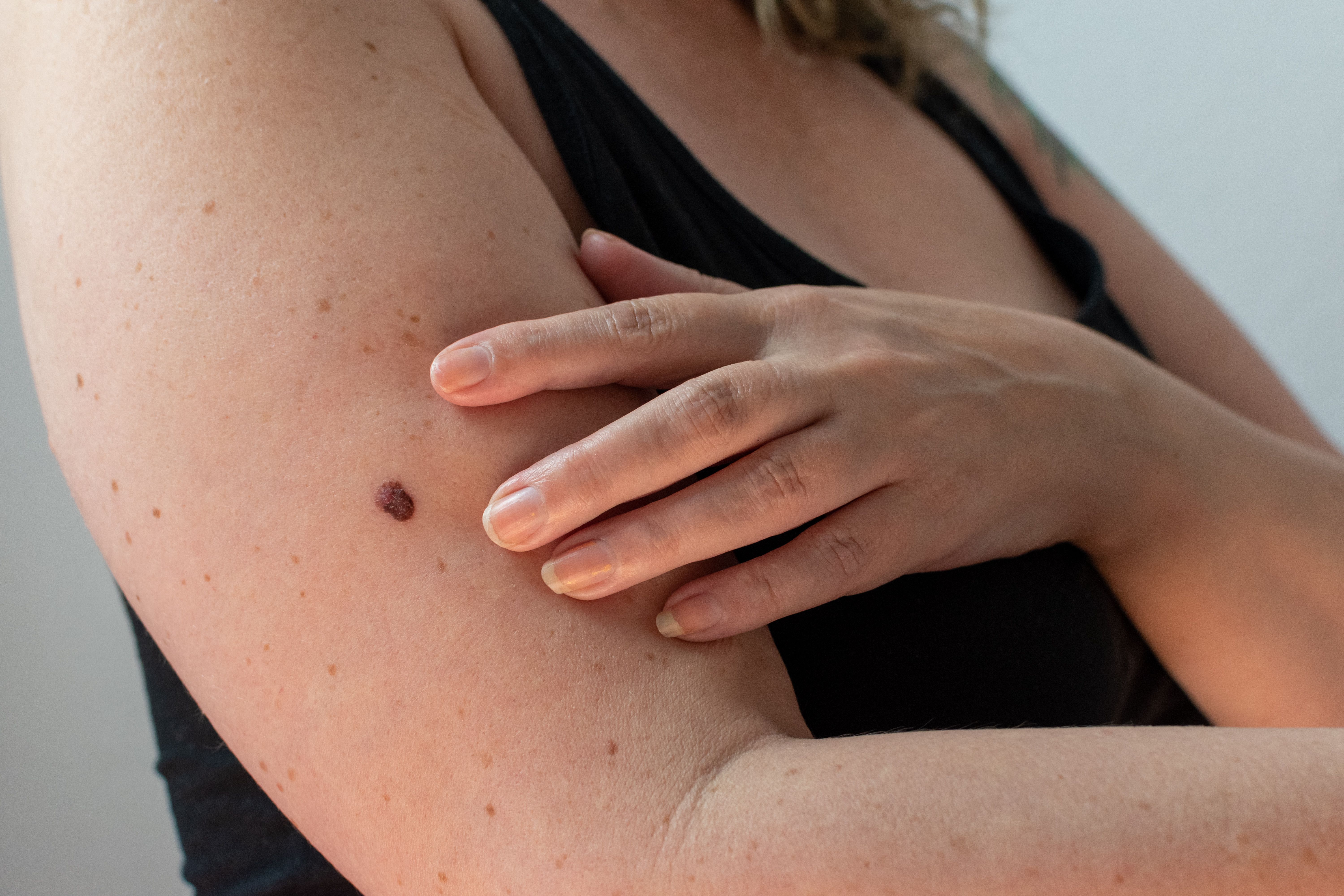- Center on Health Equity & Access
- Clinical
- Health Care Cost
- Health Care Delivery
- Insurance
- Policy
- Technology
- Value-Based Care
Survivors of Early-Stage Melanoma Have High Rates of Fear of Recurrence, Study Finds
The study aimed to improve the understanding of lived experiences and the fear of recurrence among survivors of localized, stage 0 to IIA cutaneous melanoma.
A qualitative study found most survivors of localized cutaneous melanoma report high levels of fear of cancer recurrence, negative feelings around follow-ups and melanoma surveillance, negative emotions around lifestyle changes, and thoughts about life and death.1 The findings, which were published in JAMA Dermatology, emphasize the need to address patients’ psychological well-being and implement supportive interventions when needed.
In the US, melanoma is the fifth most common cancer among men and women, and while it is more prevalent in older people, it is also one of the most common cancers diagnosed in younger adults.2 Half of all melanomas diagnosed in the US are stage 0, or melanoma in situ (MIS), or early invasive stage I melanoma, which have a relative survival rate greater than 100%.1 This means the survival rate from all causes among those with MIS or stage I melanoma is higher than among age-, sex-, and race-matched controls without melanoma. The prognosis is good for these patients, but they typically undergo frequent follow-up screening and examinations to check for recurrence or subsequent primary melanomas.
“Many studies have documented the psychological and physical repercussions of a melanoma diagnosis. However, despite the increasing incidence and prevalence of lower-stage melanomas, particularly MIS, fewer studies have used qualitative methods to understand how a melanoma diagnosis affects the lived experiences of this patient population,” the study authors wrote. “Notably, few studies have assessed the fear of cancer recurrence among survivors of early-stage melanoma, and to our knowledge, no related research has been conducted in the US.”
The study aimed to improve the understanding of lived experiences and the fear of recurrence among survivors of localized, stage 0-IIA cutaneous melanoma. The qualitative, survey-based study included input from 51 patients with melanoma with a mean age of 49.5 years. The population was 67% female, and 98% of patients (n = 50) were White, while 1 individual identified as multiracial.
The interview results showed 4 main themes regarding survivorship experiences and 10 subthemes. Four main themes among survivors’ responses were emotions surrounding follow-ups, the intensity of melanoma surveillance, lifestyle changes related to sun exposure, and thoughts about life and death.
Regarding emotions surrounding follow-up appointments, respondents reported feeling anxiety leading up to appointments, anxiety arounding undergo skin examinations due to fear of recurrence being identified, and feeling relief following normal findings upon skin examinations.
Woman checking her skin for signs of melanoma | Image credit: MW Photography - stock.adobe.com

Intensity of melanoma surveillance was another key theme, with patients reporting a range of emotions regarding biopsy frequency. Some were anxious about additional biopsies, some reported stoic and accepting feelings, and others were reportedly grateful for additional biopsies.
“In fact, some participants desired more biopsy procedures than their treating dermatologist thought necessary,” the authors wrote. “Although these participants understood that more biopsy procedures may not be useful or could cause permanent scarring, they believed that the potential benefits outweighed potential risks.”
Another subtheme related to intensity of melanoma surveillance was worries regarding their family members’ risk of melanoma, particularly children and siblings. Several participants mentioned seeking genetic testing for themselves and family members following their diagnosis, and one participant emphasized the importance of advising family members to see a dermatologist for screening.
An increase in sun protection practices, fear of the sun, and diminished enjoyment of outdoor activities were subthemes surrounding lifestyle changes. Most respondents reportedly changed their sun protection practices following localized melanoma diagnosis, such as increased sunscreen use or wearing protective clothing, to prevent subsequent melanoma.
“Overall, participants viewed sun exposure behavior changes as a balance between having an acceptable quality-of-life and still reducing their melanoma risk through behavior changes,” the authors wrote. Regarding outdoor activities, some participants reported psychological consequences such as avoiding outdoor activities that they had previously enjoyed.
Thoughts about life and death were another main theme, with one subtheme being increased thoughts and guilt about mortality. Some participants reported thinking about their own mortality nearly daily, especially when looking at their moles. A total of 38 patients (75%) met the threshold for having a clinical fear of recurrence, or a score of at least 13 points on the Fear of Cancer Recurrence Inventory short form survey.
For some, melanoma diagnosis altered their perspective on life and their future plans, with these participants saying they changed their health habits overall or renewed commitments to accomplishing goals.
The study was limited by its use of convenience sampling and inclusion of mostly White, wealthier than average, well-educated patients treated at an academic medical practice, the authors noted. Responses about follow-up care and sun exposure could also have been impacted by recall bias or social desirability bias, they added. A larger, more diverse study population is needed for future research, they noted.
“The findings of this qualitative and survey-based study suggest that despite having an excellent prognosis, patients with localized cutaneous melanoma, even those with stage 0, have high rates of fear of cancer recurrence and anxiety that produces restrictive behaviors, both of which negatively affect psychological well-being,” the authors concluded. “These findings underscore the importance of addressing the psychological well-being of patients with early melanoma and potentially implementing supportive interventions.”
References
1. Mahama AN, Haller CN, Labrada J, et al. Lived experiences and fear of cancer recurrence among survivors of localized cutaneous melanoma. JAMA Dermatol. Published online February 14, 2024. doi:10.1001/jamadermatol.2023.6158
2. Melanoma: statistics. Cancer.net. March 2023. Accessed April 29, 2024. https://www.cancer.net/cancer-types/melanoma/statistics
